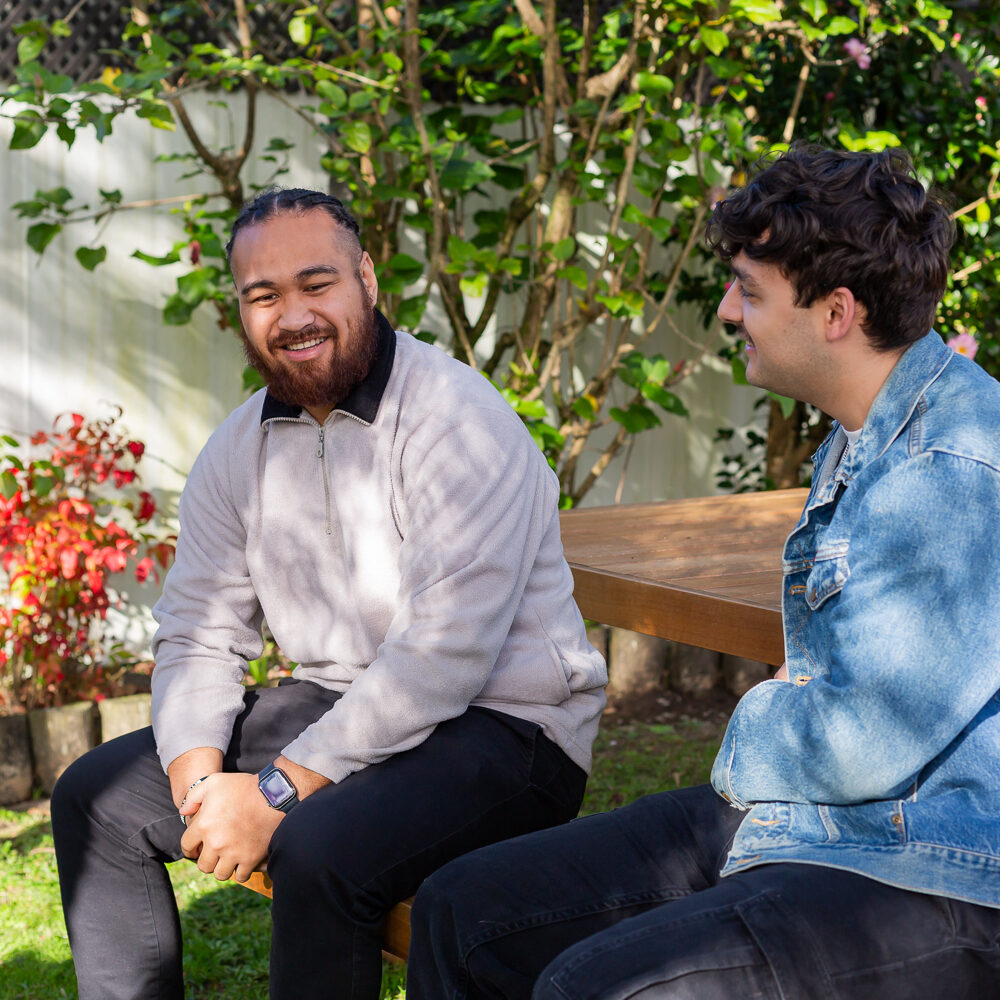Ka Puta Ka Ora Emerge Aotearoa is pleased to be working with the Social Investment Agency on new service contracting approaches to achieve genuine positive impacts for families and communities.
We have strong relationships with many Government agencies and support investment into new ways of working to deliver effective and connected health and social services. We are excited to partner on this new initiative to pilot a new way of contracting that meets the needs of the communities we serve and delivers clear outcomes.
This initiative is a positive opportunity to learn, develop and advance approaches that can be applied more widely across a range of health and social services provided in the community.
Who are we?
Ka Puta Ka Ora Emerge Aotearoa is a for-purpose charitable group delivering a broad range of mental health, addiction, housing, disability, and social services nationwide. We are committed to empowering whānau and communities to have real options, choices, and solutions that work for them.
Our approach is built on a foundation of strategic partnerships, holistic service delivery, a deep understanding of the communities we serve and the dedication of our 1500 kaimahi.
What is Multi Systemic Therapy?
The services at the centre of our work with the Social Investment Agency will utilise Multi Systemic Therapy (MST) – an approach for high-risk youth backed by a compelling national and international evidence base. The focus of these services is to engage intensively with many different aspects of a young person’s life and community to achieve significant, lasting outcomes.
MST is an evidence-based, family driven treatment for a young person’s challenging behaviour. The behaviour might include truancy, substance use, criminal offending, or violence at home or in the community. These behaviours have a hugely negative effect on families and communities, as well as the young person themselves. The service provides an MST Practitioner to work with families, several times each week for 12-20 weeks. Support can be delivered in people’s homes, at their school or in community spaces.
Multi Systemic Therapy aims to:
- create long term sustainable changes improve family relationships.
- decrease a young person’s alcohol or other substance use.
- improve a young person’s education, job or training opportunities.
- involve youth in positive activities.
- address offending behaviour and reduce the risk of youth entering the justice system.
Emerge Aotearoa has successfully delivered MST for a number of years, supporting positive outcomes for young people and their families. In 2024 65 families completed Emerge Aotearoa MST programmes. Of these 65, at the end of treatment:
- 64 (98%) of the young people were living at home
- 55 (85%) were in school or working
- 55 (85%) had no new arrests.
Emerge Aotearoa MST Case Study
When Peter (not his real name) was 12 years old he regularly engaged in high-risk behaviour and criminal offending, including stealing vehicles and participating in ram raids on shops. He was physically and verbally aggressive at home to his family, often ran away and was damaging property. He had also been expelled from school.
By the time he turned 13, his family was at breaking point. They were unsure if he could keep living with them as his constant offending and abuse had put a serious strain on their relationships. Several other agencies had tried to work with Peter and his family but were unable to reduce his offending or improve family dynamics.
Peter’s family were initially sceptical of working with MST but the therapist quickly won their trust. At the start, MST focused on engaging with Peter’s parents to discover what factors were contributing to Peter’s offending. This led to the MST Therapist developing a safety plan to reduce conflict and keep everyone safe, with the Police Youth Aid team actively involved as well. Peter’s behaviour was often preceded by conflict at home, so the therapist began to work on this by supporting the parents to communicate more effectively and work together as a team. A behaviour plan was created to clarify expectations around Peter seeing his friends and not offending. It also included keeping in contact with his parents while he was out and complying with room checks. Each of these expectations had an incentive or consequence linked to it. Within two weeks, Peter was following the plan.
The family and therapist worked on securing a school placement for Peter to keep him busy during the day and to reduce his contact with other young offenders. Peter’s mother was able to attend meetings at the school where she could talk about any of her concerns and share what she was doing at home. Peter had one slip-up during his time with MST but his parents had the tools to better deal with the situation.
By the end of the 20-week MST programme, Peter’s offending had been all-but eliminated. His parents said they felt confident they had the tools and knowledge to work with him going forward. Peter went from not attending school at all to attending four days a week. His anger levels and swearing were also greatly reduced.
For further information contact:
James Norman, Group Director Governance & Strategy
James.norman@emergeaotearoa.org.nz
Phone: 0275 666 115
